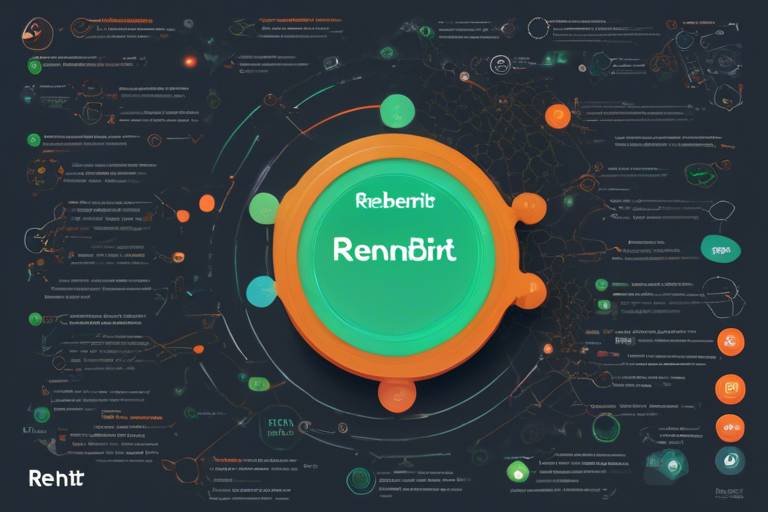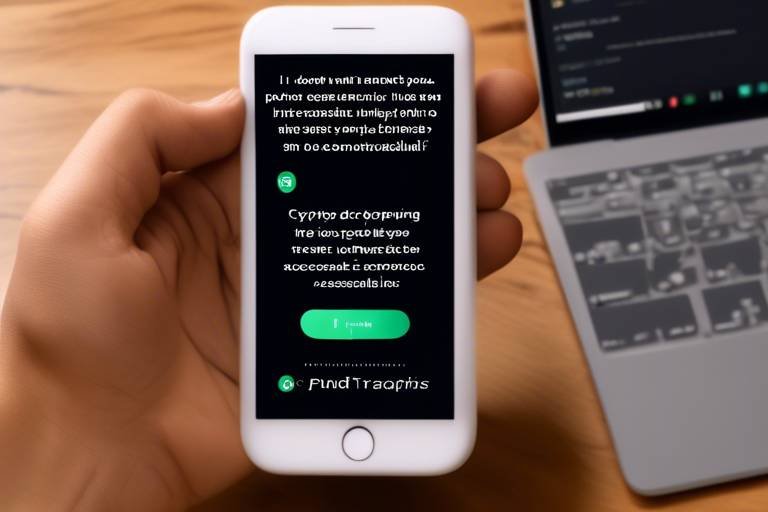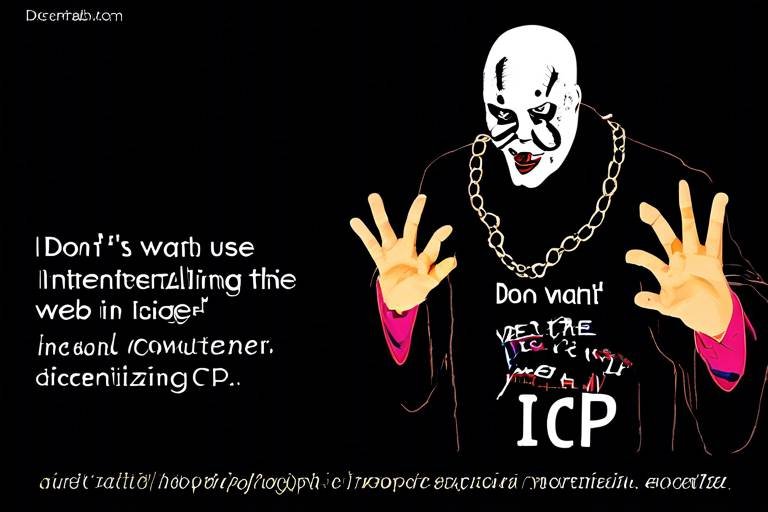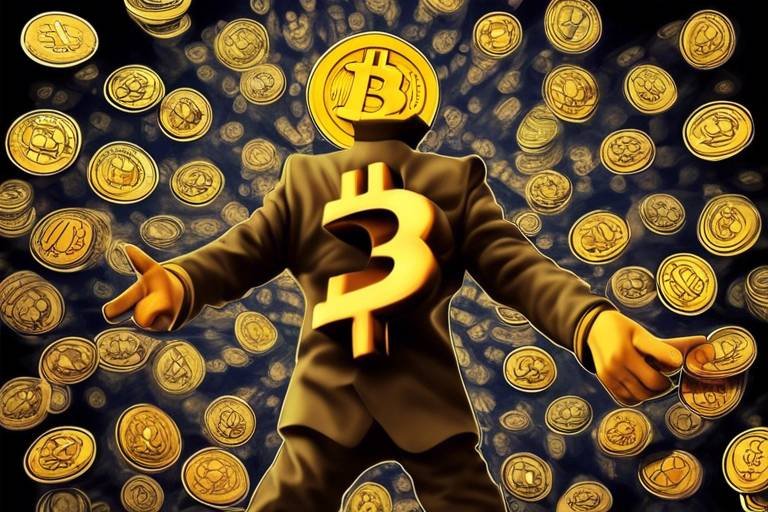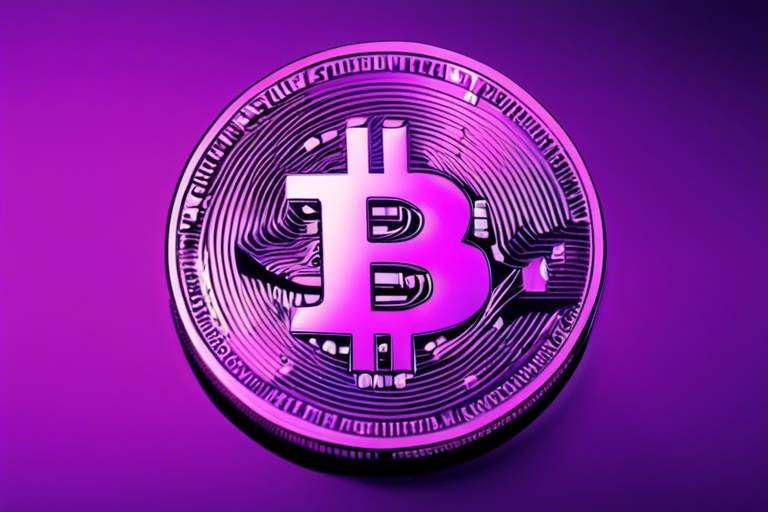Ocean Protocol - Unlocking Data for AI
In today's data-driven world, the ability to harness information effectively is nothing short of revolutionary. Enter Ocean Protocol, a groundbreaking decentralized data exchange protocol designed to empower both individuals and businesses. Imagine a world where data isn't just locked away in silos, but is instead a shared resource that fuels innovation and collaboration. Ocean Protocol is at the forefront of this transformation, enabling users to unlock, monetize, and share their data seamlessly for artificial intelligence (AI) applications.
At its core, Ocean Protocol is all about democratizing data access and ensuring that data owners retain control over their valuable assets. This isn't just a technical feat; it's a paradigm shift that redefines how we think about data ownership and utilization. By leveraging blockchain technology, Ocean Protocol creates a secure environment where data can be exchanged without compromising privacy or security. It’s akin to having a safe deposit box for your digital assets, where you can decide who gets access and under what conditions.
In this article, we will explore the intricate workings of Ocean Protocol, its key features, and the myriad of use cases that demonstrate its versatility across various industries. From healthcare to finance, the potential applications are endless, and the benefits are profound. So, buckle up as we dive deep into the ocean of data possibilities!
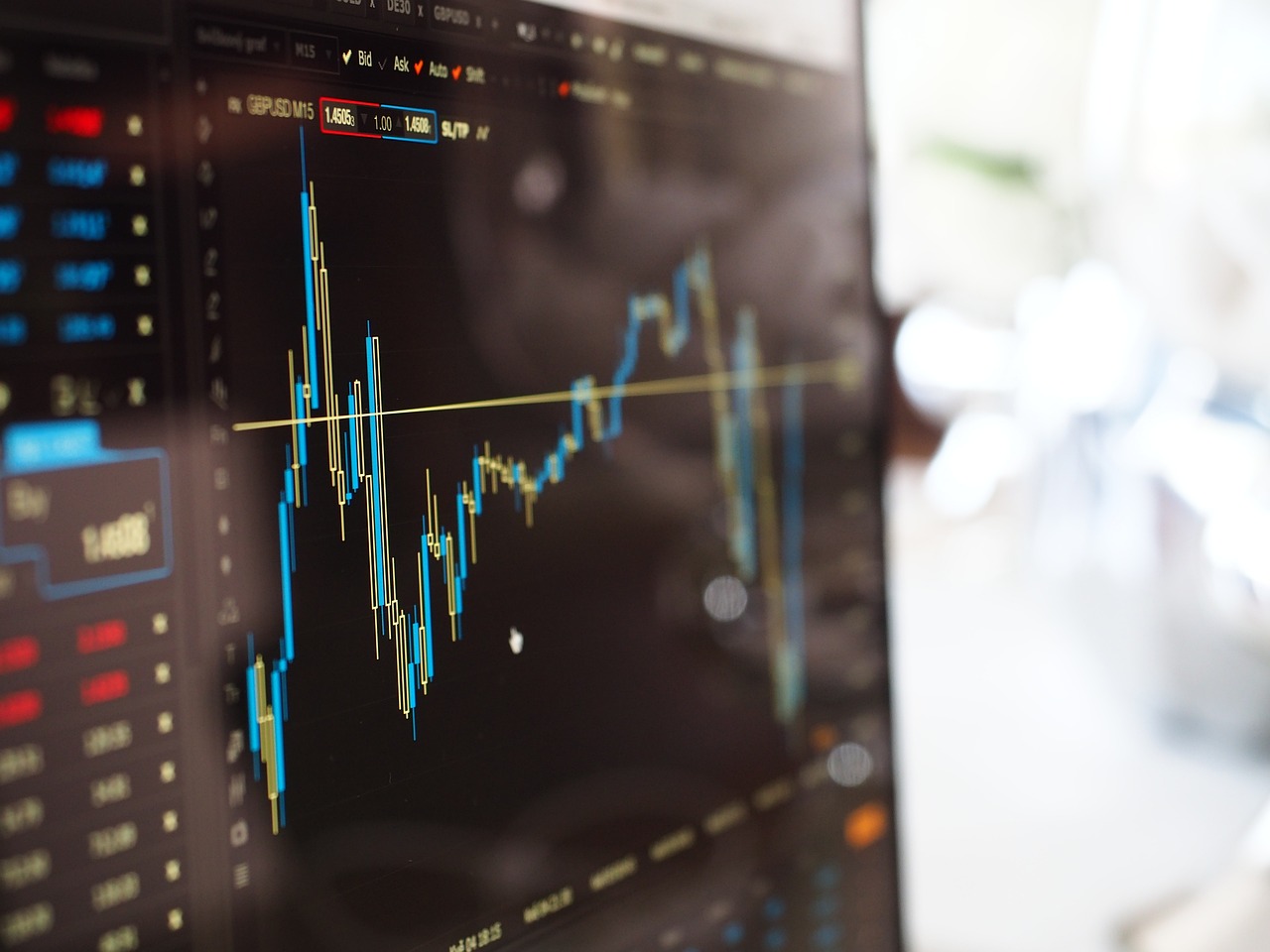
Understanding Ocean Protocol
Ocean Protocol is not just another tech buzzword; it's a revolutionary decentralized platform designed to transform how we think about data sharing. Imagine a world where individuals and businesses can securely exchange data without the fear of losing control over their valuable information. That’s exactly what Ocean Protocol aims to achieve! Built on the principles of blockchain technology, this platform allows data owners to maintain control while opening the doors for artificial intelligence (AI) applications to thrive.
The architecture of Ocean Protocol is both innovative and practical. At its core, the protocol is designed to facilitate secure and private data sharing among various stakeholders. Think of it as a digital marketplace where data providers can offer their datasets, and data consumers can access them in a secure environment. This interaction is governed by smart contracts, which automate transactions and ensure that all parties adhere to the agreed terms. The beauty of this setup lies in its ability to promote data accessibility while ensuring that privacy and security are never compromised.
In a world where data is often considered the new oil, Ocean Protocol stands out by providing a framework that empowers data owners. By utilizing a decentralized network, it eliminates the need for intermediaries, which often complicate data sharing agreements and introduce vulnerabilities. Instead, Ocean Protocol creates a direct connection between data providers and consumers, fostering a more efficient and trustworthy data economy. This not only enhances the reliability of data transactions but also encourages collaboration across industries.
Moreover, the protocol is built to integrate seamlessly with existing blockchain ecosystems, allowing for enhanced interoperability. This means that data from various sources can be combined and utilized more effectively. For instance, a healthcare provider could share anonymized patient data with researchers, who can then use this information to develop AI-driven solutions that improve patient outcomes. This interconnectedness is vital for unlocking the full potential of AI, as it requires diverse datasets to learn and evolve.
In summary, Ocean Protocol is a game-changer in the data economy. By prioritizing security, privacy, and accessibility, it paves the way for innovative AI applications that can transform industries. Whether it's in healthcare, finance, or any other sector, the potential for data utilization is immense, and Ocean Protocol is at the forefront of this revolution.

Key Features of Ocean Protocol
Ocean Protocol stands out in the crowded landscape of data exchange solutions, primarily due to its unique set of features designed to enhance data utilization for artificial intelligence applications. At its core, Ocean Protocol aims to create a decentralized environment where data can be securely shared, monetized, and utilized without compromising privacy. This is crucial, especially in today's data-driven world where information is power. By leveraging blockchain technology, Ocean Protocol not only ensures that data is accessible but also that it remains secure and under the control of its rightful owners.
One of the most significant features of Ocean Protocol is its robust data privacy mechanisms. In an era where data breaches are alarmingly common, Ocean Protocol employs advanced cryptographic techniques to safeguard sensitive information. This means that data owners can share their data with AI developers and researchers while maintaining control over who accesses it and how it is used. This is akin to giving someone a key to your house while still retaining ownership of the property—an essential aspect of trust in the data economy.
Moreover, Ocean Protocol introduces the tokenization of data assets, transforming traditional data into digital tokens. This innovative approach simplifies the trading and monetization of data, allowing data providers to easily list their assets on the Ocean marketplace. Tokenization not only creates a new revenue stream for data owners but also democratizes access to valuable datasets for AI developers. Imagine your data as a collectible card—once tokenized, it can be traded, sold, or utilized in various ways, enhancing its overall value.
Another key feature is the Ocean Marketplace, which serves as a dynamic platform for data providers and consumers to interact seamlessly. This marketplace facilitates transactions in a user-friendly environment, allowing data buyers to discover and acquire datasets that meet their specific needs. It’s like an online bazaar where data is the currency, and the possibilities are endless. The marketplace is structured to encourage collaboration and innovation, making it easier for businesses and researchers to find the data they need to drive their AI projects forward.
In summary, the key features of Ocean Protocol—data privacy mechanisms, tokenization of data assets, and the Ocean Marketplace—work together to create a powerful ecosystem for data exchange. These features not only enhance data utilization for AI models but also foster a culture of innovation and collaboration. As we continue to explore the capabilities of Ocean Protocol, it’s clear that its unique approach to data sharing is paving the way for a more inclusive and efficient data economy.
- What is Ocean Protocol? Ocean Protocol is a decentralized data exchange protocol that enables secure and private data sharing, allowing individuals and businesses to unlock and monetize their data for AI applications.
- How does data privacy work in Ocean Protocol? Ocean Protocol employs advanced cryptographic techniques to ensure that sensitive data remains secure while enabling access for AI developers and researchers.
- What is data tokenization? Tokenization in Ocean Protocol refers to the process of converting data into digital tokens, making it easier to trade and monetize.
- How does the Ocean Marketplace function? The Ocean Marketplace is a platform where data providers and consumers can interact, facilitating seamless transactions for data services.

Data Privacy Mechanisms
When it comes to data privacy, Ocean Protocol is at the forefront, implementing a variety of sophisticated mechanisms designed to protect sensitive information while still facilitating its use for artificial intelligence applications. Imagine a vault where data is securely stored, yet the key can be shared selectively with trusted parties—this is essentially how Ocean Protocol operates. By leveraging advanced blockchain technology, it ensures that data remains under the control of its owners, allowing them to decide who can access their valuable assets.
One of the standout features of Ocean Protocol is its use of smart contracts. These self-executing contracts with the terms of the agreement directly written into code play a crucial role in maintaining data privacy. They automate processes and enforce rules without the need for intermediaries, significantly reducing the risk of data breaches. For instance, when a data provider shares their information, a smart contract can dictate the conditions under which the data can be accessed, ensuring that unauthorized users are kept at bay.
Additionally, Ocean Protocol employs a concept known as data tokenization. This transforms data into digital tokens that can be traded on the marketplace. Tokenization not only enhances data security but also allows for granular control over how data is shared. Data owners can issue tokens that represent access rights to their data, meaning they can sell or lease these tokens while retaining ownership. This is akin to renting out an apartment—you can profit from your property while still holding onto it.
Moreover, the protocol utilizes privacy-preserving technologies, such as zero-knowledge proofs. These allow data to be verified without revealing the actual data itself. This means that AI developers can gain insights and perform analyses without ever having direct access to the underlying sensitive information. This feature is particularly beneficial in industries like healthcare, where patient confidentiality is paramount.
| Privacy Mechanism | Description |
|---|---|
| Smart Contracts | Automate data sharing agreements and enforce rules without intermediaries. |
| Tokenization | Transforms data into digital tokens for easier trading and control. |
| Zero-Knowledge Proofs | Allows verification of data without exposing the actual data. |
In summary, Ocean Protocol's are designed not only to protect sensitive information but also to empower data owners. By combining smart contracts, tokenization, and advanced privacy technologies, it creates a secure environment where data can be shared responsibly. This innovative approach not only fosters trust among data providers but also encourages a more vibrant and collaborative data economy.
- What is Ocean Protocol? Ocean Protocol is a decentralized data exchange platform that allows individuals and businesses to share and monetize their data securely.
- How does Ocean Protocol ensure data privacy? It employs smart contracts, tokenization, and privacy-preserving technologies like zero-knowledge proofs to protect sensitive information.
- Can data owners control access to their data? Yes, data owners maintain full control over their data and can set conditions for access through smart contracts.
- What industries can benefit from Ocean Protocol? Various industries, including healthcare and finance, can leverage Ocean Protocol to enhance their AI capabilities and data monetization strategies.
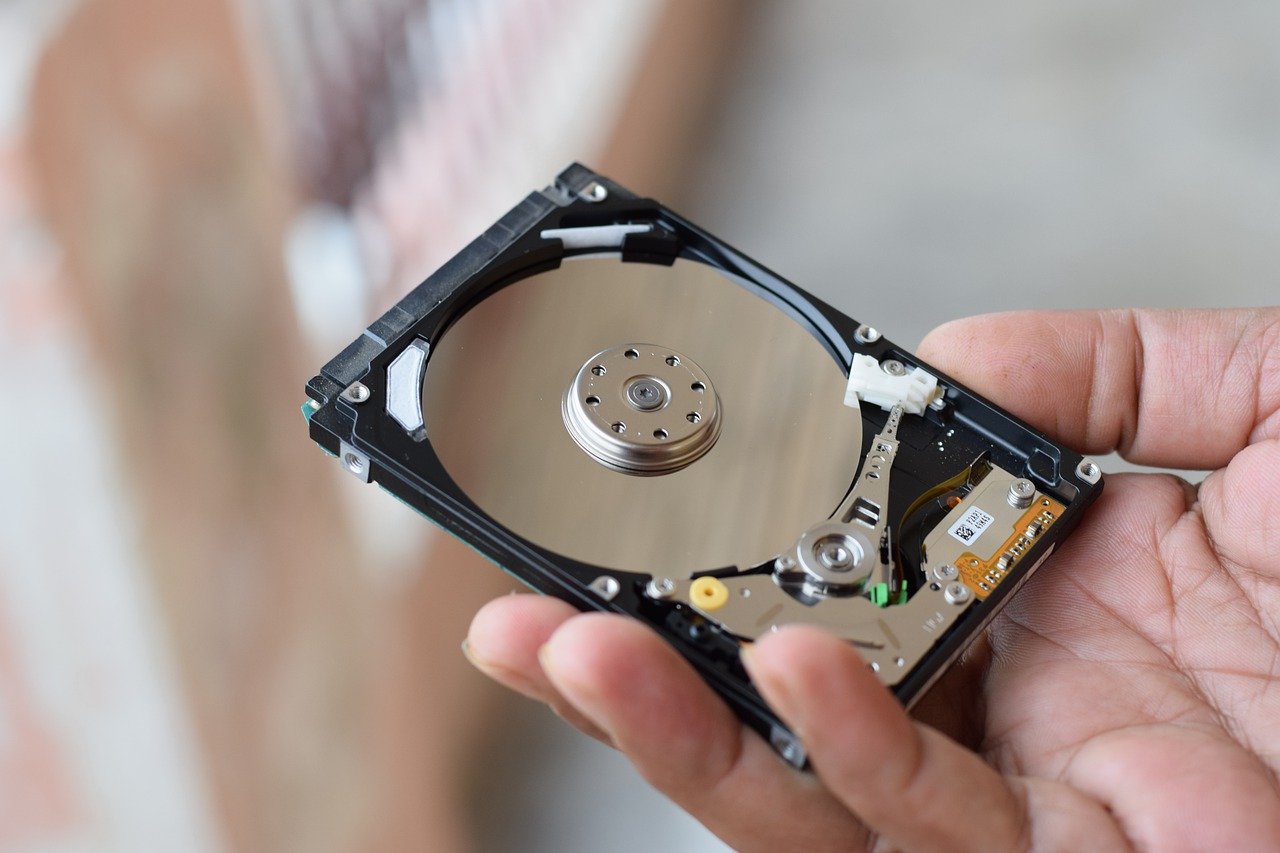
Secure Data Sharing
In today's digital landscape, where data breaches and privacy concerns are rampant, has become a necessity rather than a luxury. Ocean Protocol addresses this pressing need by leveraging the power of blockchain technology to create a safe and transparent environment for data transactions. Through the use of smart contracts, Ocean Protocol ensures that data owners retain control over their assets while allowing access to AI developers and researchers who need this data to fuel their innovations.
Imagine a world where researchers can access vital datasets without compromising the privacy of individuals. Ocean Protocol makes this possible by utilizing advanced cryptographic techniques that allow data to be shared in a way that is both secure and transparent. This means that sensitive information can be processed without exposing it, creating a win-win situation for both data owners and users. The protocol's decentralized governance model further enhances security by distributing control among multiple stakeholders, reducing the risk of central points of failure.
One of the key components of Ocean Protocol's secure data sharing is its ability to facilitate data access agreements through smart contracts. These contracts define the terms and conditions under which data can be accessed and used, ensuring that all parties are aware of their rights and obligations. This level of clarity fosters trust among users, which is crucial for encouraging widespread adoption of the protocol.
Moreover, the platform's architecture allows for a variety of data sharing models. For instance, data can be shared on a pay-per-use basis, where users only pay for the data they access, or through subscription models that provide ongoing access to datasets. This flexibility not only maximizes the utility of data but also opens up new revenue streams for data providers.
To illustrate the mechanics of secure data sharing within Ocean Protocol, consider the following table that outlines the different components involved:
| Component | Description |
|---|---|
| Smart Contracts | Automated agreements that define the terms of data access and usage. |
| Data Tokenization | Transforms data into tradable digital assets, simplifying transactions. |
| Decentralized Governance | Distributes control among stakeholders to enhance security and trust. |
| Privacy-Preserving Technologies | Ensures sensitive data remains confidential while being accessible for analysis. |
In conclusion, Ocean Protocol's approach to secure data sharing not only protects the interests of data owners but also empowers AI developers with the information they need to create groundbreaking solutions. By promoting a culture of trust and transparency, Ocean Protocol is paving the way for a more collaborative and innovative data economy.
- What is Ocean Protocol? - Ocean Protocol is a decentralized data exchange protocol that allows individuals and businesses to share and monetize their data securely.
- How does secure data sharing work? - It utilizes smart contracts and advanced cryptographic techniques to ensure that data remains secure while being accessible to authorized users.
- Can data owners control who accesses their data? - Yes, data owners can define terms and conditions through smart contracts, maintaining control over their assets.
- What are the benefits of using Ocean Protocol? - Ocean Protocol enhances data privacy, promotes innovation, and creates new revenue streams for data providers.

Tokenization of Data Assets
Tokenization is a revolutionary concept that transforms data into digital assets, enabling a new era of data monetization and ownership. In the context of Ocean Protocol, this process allows data owners to represent their data sets as tokens on the blockchain, which can be easily traded and utilized within the ecosystem. Imagine your data as a digital currency; just like how cryptocurrencies can be bought, sold, or exchanged, tokenized data can flow through the marketplace, facilitating seamless transactions between data providers and consumers.
This innovative approach not only enhances liquidity in the data market but also provides a secure method for data owners to maintain control over their assets. By tokenizing data, individuals and businesses can set specific terms for access and usage, ensuring that they are compensated fairly for their contributions. It’s akin to renting out a room in your house; you can dictate the rules, set the price, and decide who gets to stay.
One of the most significant advantages of tokenization within Ocean Protocol is the ability to create a transparent and traceable history of data transactions. Each token carries metadata that provides information about the data's origin, usage rights, and transaction history. This transparency builds trust among participants in the marketplace, as everyone can verify the legitimacy of the data being exchanged. To further illustrate this point, here’s a simple table showing how tokenization enhances data ownership:
| Feature | Traditional Data Ownership | Tokenized Data Ownership |
|---|---|---|
| Control | Limited control over data access | Full control with customizable access rights |
| Liquidity | Difficult to monetize | Easy to trade and monetize |
| Transparency | Opaque transaction history | Clear and traceable transaction history |
Moreover, tokenization allows for fractional ownership, meaning that multiple parties can own a share of a data asset. This opens up opportunities for collaboration and innovation, as smaller entities can pool resources to access high-value datasets that they might not have been able to afford individually. For instance, a small startup could collaborate with a larger corporation by purchasing a fraction of a valuable dataset, thus gaining insights that could propel their AI-driven solutions forward.
In conclusion, the tokenization of data assets within Ocean Protocol not only democratizes access to data but also creates a thriving ecosystem where data can be treated as a valuable commodity. This paradigm shift not only empowers data owners but also fosters a culture of innovation, collaboration, and trust in the data economy. With the potential for increased revenue streams and enhanced data utilization, the future of tokenized data is bright, and Ocean Protocol is leading the charge in this exciting new frontier.
- What is tokenization in the context of Ocean Protocol?
Tokenization refers to the process of converting data into digital tokens on the blockchain, allowing for easier trading and monetization of data assets. - How does tokenization enhance data ownership?
Tokenization provides data owners with full control over their assets, customizable access rights, and the ability to monetize their data easily. - Can multiple parties own a tokenized data asset?
Yes, tokenization allows for fractional ownership, enabling collaboration among various stakeholders who can share the costs and benefits of valuable datasets.

Marketplace Dynamics
The Ocean Protocol marketplace serves as a vibrant ecosystem where data providers and consumers can engage in seamless transactions. Imagine a bustling marketplace filled with diverse vendors and eager buyers, each looking to exchange valuable goods. In this case, the goods are data sets, and the transactions are powered by blockchain technology, ensuring transparency and security. This decentralized marketplace is not just a platform; it’s a dynamic environment that fosters innovation and collaboration among participants.
At its core, the marketplace is designed to facilitate the buying and selling of data assets, enabling data providers to monetize their datasets while allowing data consumers, such as AI developers and researchers, to access high-quality data for their projects. The architecture of the marketplace is built on the principles of decentralization, ensuring that no single entity has control over data transactions. This structure empowers data owners, granting them the authority to set terms for data usage and pricing.
One of the standout features of the Ocean Protocol marketplace is its use of smart contracts. These self-executing contracts automatically enforce the terms of data transactions, ensuring that data is shared only under agreed conditions. For instance, if a researcher wants to access a dataset, the smart contract can stipulate that the data will only be used for specific research purposes. This not only protects the interests of data providers but also builds trust between parties.
Furthermore, the marketplace supports a variety of data services, including data discovery, data curation, and data analytics. Users can browse through an extensive catalog of datasets, each accompanied by detailed descriptions and usage guidelines. This makes it easier for consumers to find the exact data they need for their AI applications. The marketplace also features a rating and review system, allowing users to assess the quality and reliability of data providers before making a purchase.
In addition to facilitating transactions, the Ocean Protocol marketplace encourages community engagement through governance mechanisms. Stakeholders can participate in decision-making processes regarding the evolution of the marketplace, ensuring that it meets the needs of its users. This democratic approach not only enhances the user experience but also fosters a sense of ownership among participants.
As the demand for data-driven insights continues to rise, the Ocean Protocol marketplace positions itself as a pivotal player in the data economy. By bridging the gap between data providers and consumers, it unlocks new opportunities for innovation and collaboration across various industries. Whether it’s healthcare, finance, or any other sector, the marketplace is ready to support the next wave of AI advancements.
- What is Ocean Protocol? Ocean Protocol is a decentralized data exchange protocol that allows individuals and businesses to unlock and monetize their data for AI applications.
- How does the marketplace work? The marketplace connects data providers and consumers, enabling secure transactions facilitated by smart contracts.
- What are the benefits of using Ocean Protocol? It ensures data privacy, promotes data monetization, and fosters collaboration among various stakeholders in the data economy.
- Can anyone participate in the marketplace? Yes, anyone can become a data provider or consumer in the Ocean Protocol marketplace, provided they adhere to the platform's guidelines.

Use Cases for Ocean Protocol
Ocean Protocol is making waves across various industries by providing a robust framework for data sharing and monetization. The beauty of this decentralized platform lies in its ability to unlock the potential of data, allowing organizations to harness its power for artificial intelligence applications. With the increasing demand for data-driven insights, Ocean Protocol stands at the forefront, facilitating innovative solutions in sectors like healthcare, finance, and beyond.
One of the most compelling use cases of Ocean Protocol can be found in the healthcare sector. Imagine a world where researchers can access vast amounts of anonymized patient data without compromising privacy. Ocean Protocol enables this by allowing hospitals and research institutions to share their data securely. This not only fosters collaboration but also accelerates medical discoveries. For instance, AI algorithms can analyze diverse datasets to identify patterns that lead to breakthroughs in treatment methodologies, ultimately enhancing patient outcomes. By utilizing Ocean Protocol, healthcare providers can contribute to a larger pool of knowledge while maintaining control over their sensitive data.
Another significant application of Ocean Protocol is in the finance industry. Financial institutions are constantly seeking ways to leverage data for competitive advantage, and Ocean Protocol provides the perfect solution. By tokenizing their data assets, banks and investment firms can monetize insights derived from their data. This process simplifies the trading of financial data, allowing institutions to share valuable information while maintaining ownership. For example, an investment firm can sell access to its proprietary market analysis algorithms, enabling other companies to make informed decisions based on real-time data. This not only generates revenue for the data providers but also enriches the market with diverse analytical perspectives.
Additionally, Ocean Protocol is gaining traction in the retail sector. Retailers can utilize the platform to share customer data and purchasing trends while ensuring privacy. By analyzing this data, businesses can refine their marketing strategies and improve customer experiences. For example, a clothing retailer could share anonymized data on buying patterns, allowing brands to tailor their offerings more effectively. This collaborative approach not only boosts sales but also fosters a sense of community among retailers.
To illustrate the versatility of Ocean Protocol, here is a table summarizing various use cases across different industries:
| Industry | Use Case | Benefits |
|---|---|---|
| Healthcare | Secure data sharing for research | Accelerates medical discoveries and enhances patient outcomes |
| Finance | Monetization of data assets | Generates revenue and provides valuable insights for investment decisions |
| Retail | Customer data analysis | Improves marketing strategies and enhances customer experience |
As we can see, Ocean Protocol is not just a theoretical concept; it is actively transforming industries by enabling secure, decentralized data sharing. The implications of these use cases are profound, as they not only promote innovation but also drive collaboration among various stakeholders. The potential for AI applications is limitless, and Ocean Protocol is paving the way for a data-driven future.
What is Ocean Protocol?
Ocean Protocol is a decentralized data exchange protocol that allows individuals and businesses to unlock and monetize their data securely for AI applications.
How does Ocean Protocol ensure data privacy?
Ocean Protocol employs advanced technologies like encryption and smart contracts to protect sensitive data while allowing access for AI developers and researchers.
What industries can benefit from Ocean Protocol?
Various industries, including healthcare, finance, and retail, can leverage Ocean Protocol to enhance their AI capabilities and drive innovation.
Can data be monetized on Ocean Protocol?
Yes, Ocean Protocol enables the tokenization of data assets, allowing for easier trading and monetization of data.
What are the challenges facing Ocean Protocol?
Ocean Protocol faces challenges such as regulatory hurdles and market adoption barriers, which can impact its growth and success.

Healthcare Innovations
In the rapidly evolving world of healthcare, Ocean Protocol is making waves by enabling secure data sharing that fosters innovation and enhances patient outcomes. Imagine a world where researchers can access vast amounts of health data without compromising patient privacy. This is not just a dream; it's a reality made possible by Ocean Protocol's decentralized framework. By allowing healthcare providers to share anonymized data, researchers can develop AI-driven solutions that lead to breakthroughs in treatment and patient care.
The healthcare sector often grapples with the challenge of data silos, where valuable information is trapped within organizations. Ocean Protocol breaks down these barriers, creating a collaborative environment where data can flow freely yet securely. For instance, consider a scenario where a hospital wants to share clinical trial data with researchers. Using Ocean Protocol, they can tokenize this data, ensuring that it remains protected while still being accessible for analysis. This not only accelerates the pace of medical discoveries but also enhances the quality of care provided to patients.
Moreover, the protocol's marketplace allows for the monetization of data assets, which can be a game changer for healthcare organizations. Hospitals and clinics can now generate revenue from their data while maintaining control over how it is used. This is particularly important in a sector where funding can be tight, and every dollar counts. By participating in the Ocean Protocol marketplace, healthcare providers can engage in data transactions that drive innovation and improve patient outcomes.
To illustrate the impact of Ocean Protocol in healthcare, let's consider a few key areas where it is making a difference:
- Research Collaboration: Ocean Protocol enables researchers from different institutions to collaborate on studies without the fear of exposing sensitive patient data.
- Predictive Analytics: By analyzing shared health data, AI algorithms can predict disease outbreaks, helping healthcare systems respond proactively.
- Personalized Medicine: Access to diverse datasets allows for the development of personalized treatment plans tailored to individual patient needs.
As we look to the future, the potential of Ocean Protocol in healthcare is immense. By bridging the gap between data providers and researchers, it not only enhances the quality of healthcare but also paves the way for innovative solutions that can save lives. The ability to harness the power of data while ensuring privacy and security is a critical step toward a more effective and efficient healthcare system.
Q1: How does Ocean Protocol ensure data privacy in healthcare?
A1: Ocean Protocol employs advanced encryption and tokenization techniques, allowing healthcare providers to share data securely while maintaining patient confidentiality.
Q2: Can small healthcare providers benefit from Ocean Protocol?
A2: Absolutely! Ocean Protocol provides a platform for small providers to monetize their data and collaborate with larger institutions, leveling the playing field.
Q3: What types of data can be shared using Ocean Protocol?
A3: Any type of anonymized healthcare data, including clinical trial results, patient records, and research findings, can be shared on the Ocean Protocol marketplace.
Q4: How does Ocean Protocol impact patient care?
A4: By facilitating secure data sharing, Ocean Protocol enables faster research and the development of AI-driven solutions, ultimately leading to improved patient outcomes.

Finance and Data Monetization
In the rapidly evolving landscape of finance, data is the new gold. With Ocean Protocol, financial institutions and data providers can unlock the full potential of their data assets, transforming them into lucrative opportunities. Imagine being able to monetize your data while retaining control and privacy—that’s precisely what Ocean Protocol offers. It enables organizations to securely share data, allowing them to extract valuable insights that inform investment strategies and drive innovation.
The finance sector is particularly well-suited for leveraging Ocean Protocol due to its reliance on data-driven decision-making. By utilizing the protocol, companies can access a wealth of data from various sources, including market trends, consumer behavior, and economic indicators. This data can be tokenized and traded on the Ocean marketplace, facilitating a seamless flow of information between data providers and consumers. As a result, financial institutions can enhance their analytical capabilities, enabling them to make more informed decisions.
One of the standout features of Ocean Protocol in the finance sector is its emphasis on data privacy. Financial data is often sensitive and must be handled with care. Ocean Protocol employs advanced technologies to ensure that data remains secure while still being accessible for analysis. This means that organizations can share their data without the fear of compromising sensitive information, thus promoting a culture of trust and collaboration.
Moreover, the protocol allows for the creation of data marketplaces, where financial institutions can buy and sell data assets. This not only opens up new revenue streams but also enhances the overall value of data within the financial ecosystem. The ability to monetize data effectively means that organizations can reinvest these funds into further innovation and development, creating a positive feedback loop that benefits all stakeholders involved.
To illustrate the potential of data monetization in finance, let’s look at a few examples:
| Use Case | Description | Benefits |
|---|---|---|
| Risk Assessment | Accessing diverse datasets to improve risk modeling. | Enhanced accuracy in predicting defaults and financial risks. |
| Market Analysis | Utilizing real-time data to inform trading strategies. | Increased profitability and faster response to market changes. |
| Customer Insights | Analyzing consumer behavior data to tailor financial products. | Improved customer satisfaction and retention rates. |
In conclusion, Ocean Protocol is revolutionizing the finance sector by providing a robust framework for data monetization. As organizations increasingly recognize the value of their data, the demand for secure, efficient platforms like Ocean Protocol will only grow. By facilitating data sharing and fostering innovation, Ocean Protocol is paving the way for a more data-driven financial future.
- What is Ocean Protocol?
Ocean Protocol is a decentralized data exchange protocol that allows individuals and businesses to unlock and monetize their data securely. - How does Ocean Protocol ensure data privacy?
It employs advanced technologies to protect sensitive data while enabling access for analysis and AI applications. - Can financial institutions benefit from Ocean Protocol?
Yes, they can monetize their data, enhance risk assessments, and improve decision-making through data-driven insights. - What types of data can be traded on the Ocean Protocol marketplace?
A wide range of data types can be traded, including market trends, consumer behavior, and economic indicators.

Challenges and Limitations
While Ocean Protocol holds immense promise for transforming how we manage and monetize data, it is not without its challenges and limitations. One of the most pressing issues is the regulatory landscape surrounding data sharing and privacy. As governments around the world grapple with how to manage data protection, Ocean Protocol must navigate a complex web of regulations that can vary significantly from one jurisdiction to another. This variability can create uncertainty for users and developers alike, potentially stifling innovation and adoption.
Moreover, regulatory compliance can impose additional costs and administrative burdens on data providers and consumers, which may hinder participation in the Ocean Protocol ecosystem. For instance, organizations may need to invest in legal consultations to ensure they are compliant with data protection laws such as GDPR in Europe or CCPA in California. This complexity can deter smaller businesses from leveraging the platform, limiting the diversity of data available for AI applications.
Another challenge is market adoption. Although the concept of decentralized data sharing is appealing, many potential users may find the technology daunting. The integration of blockchain technology and smart contracts can be intimidating for those who are not tech-savvy. Additionally, there is often a lack of awareness about the benefits of using Ocean Protocol, which can lead to hesitancy in adopting the platform.
To illustrate the potential barriers to adoption, consider the following factors:
- Technological Complexity: Users may struggle with the technical aspects of setting up and utilizing Ocean Protocol, which could lead to frustration and abandonment.
- User Awareness: Many potential users simply may not understand what Ocean Protocol offers or how it can benefit them, leading to missed opportunities.
To overcome these challenges, Ocean Protocol advocates for educational initiatives and user-friendly interfaces that can demystify the technology. By providing resources such as tutorials, webinars, and community support, the protocol can help users feel more comfortable navigating the platform.
Furthermore, collaboration with regulatory bodies could pave the way for clearer guidelines that facilitate safer and easier data sharing practices. By engaging with policymakers, Ocean Protocol can contribute to shaping a regulatory environment that supports innovation while protecting individual privacy.
In conclusion, while Ocean Protocol stands at the forefront of the data economy, it must address regulatory considerations and market adoption barriers to fully realize its potential. By fostering a collaborative environment and simplifying user experiences, the protocol can enhance its appeal and drive widespread acceptance.
What is Ocean Protocol?
Ocean Protocol is a decentralized data exchange platform that allows individuals and businesses to share and monetize data securely, enabling AI applications to thrive.
How does Ocean Protocol ensure data privacy?
Ocean Protocol employs advanced technologies, including smart contracts and encryption, to ensure sensitive data remains secure while granting access to authorized users.
What are the main challenges facing Ocean Protocol?
The primary challenges include navigating regulatory complexities and overcoming market adoption barriers, such as technological complexity and user awareness.
How can users overcome the challenges of using Ocean Protocol?
Users can benefit from educational resources, community support, and user-friendly interfaces designed to simplify the onboarding process and enhance understanding of the platform.

Regulatory Considerations
As Ocean Protocol continues to evolve, navigating the complex landscape of becomes increasingly vital. The decentralized nature of the platform offers immense potential for data sharing, but it also raises important legal questions. For instance, how do existing data protection laws, such as the General Data Protection Regulation (GDPR) in Europe, apply to decentralized data exchanges? This is a crucial aspect that data providers and users must consider.
One of the primary challenges is ensuring compliance with various national and international regulations. Data sharing, especially in sectors like healthcare and finance, is often subject to stringent rules designed to protect sensitive information. Ocean Protocol must ensure that its mechanisms for data sharing are not only secure but also compliant with these regulations. This means that data providers must be able to demonstrate that they have the right to share their data, and that it is done in a manner that respects the privacy of individuals.
Moreover, as regulatory bodies around the world begin to catch up with the rapid advancements in technology, there is a growing focus on establishing frameworks that govern decentralized platforms. The lack of clear regulatory guidelines can create uncertainty for businesses looking to adopt Ocean Protocol. To mitigate this, the protocol's developers are engaging with regulators to advocate for balanced policies that foster innovation while ensuring consumer protection.
Another aspect to consider is the liability of data providers. If data shared through Ocean Protocol is used in a way that leads to negative outcomes, who is held accountable? This question remains unanswered and poses a significant risk for those involved in the data economy. Establishing clear guidelines on liability and accountability will be essential for promoting trust in the platform.
To summarize, the regulatory landscape for Ocean Protocol is multifaceted and constantly evolving. Key considerations include:
- Compliance with data protection laws like GDPR
- Engagement with regulators to shape supportive policies
- Clarification of liability for data providers
As the protocol gains traction, it is imperative for all stakeholders to stay informed about regulatory developments and actively participate in discussions that shape the future of decentralized data sharing.
Q: What is Ocean Protocol?
A: Ocean Protocol is a decentralized data exchange protocol that allows individuals and businesses to unlock and monetize their data for artificial intelligence applications.
Q: How does Ocean Protocol ensure data privacy?
A: Ocean Protocol employs advanced technologies, including smart contracts and encryption, to protect sensitive data while allowing access for AI developers.
Q: What are the key benefits of using Ocean Protocol?
A: The key benefits include enhanced data privacy, tokenization of data assets, and a marketplace that facilitates seamless interactions between data providers and consumers.
Q: What challenges does Ocean Protocol face?
A: Ocean Protocol faces challenges related to regulatory compliance, market adoption barriers, and the need for broader awareness among potential users.
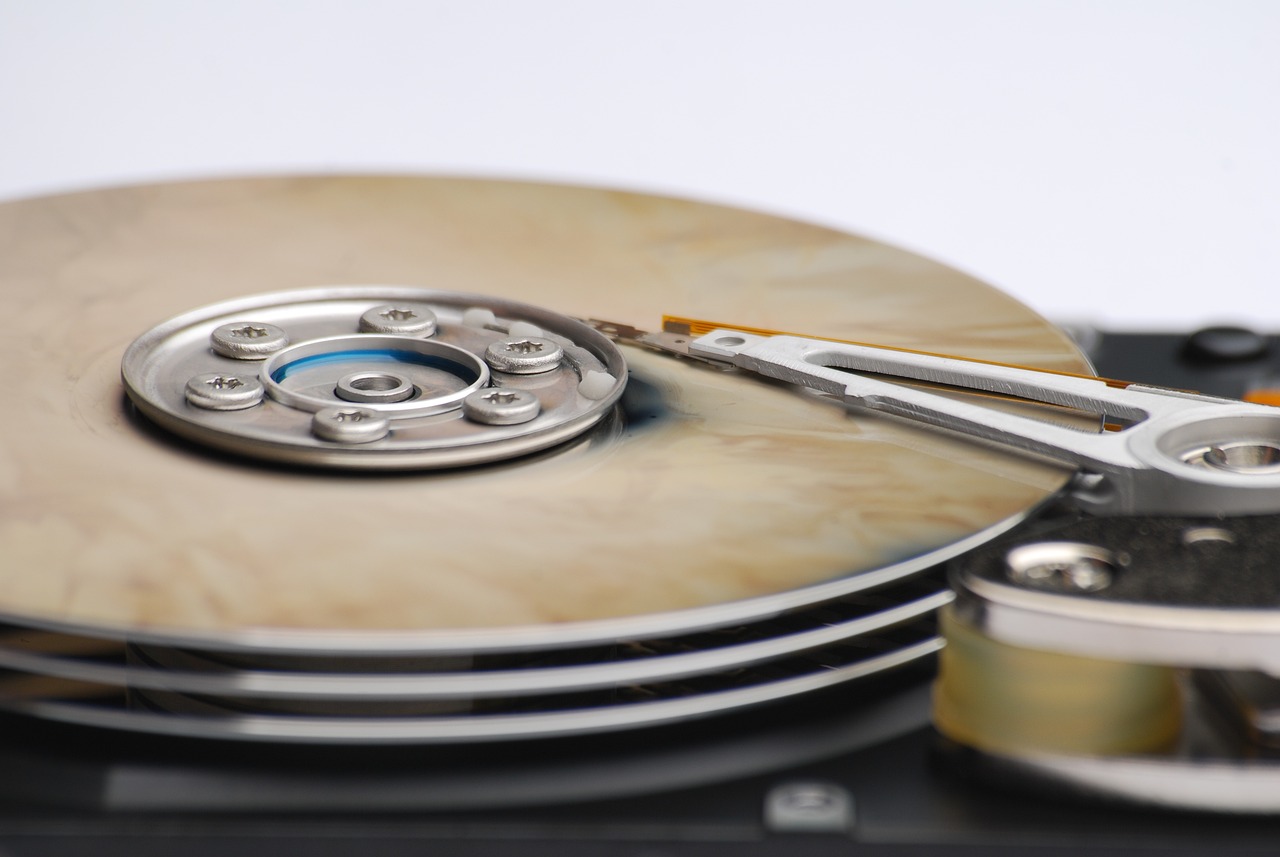
Market Adoption Barriers
Despite the promising potential of Ocean Protocol in revolutionizing data sharing and monetization, several hinder its widespread acceptance. One major challenge is the technological complexity associated with blockchain and decentralized systems. Many businesses and individuals may find it daunting to navigate the intricacies of implementing Ocean Protocol into their existing workflows. This complexity can create a significant barrier to entry, particularly for smaller organizations that lack the technical expertise or resources to fully understand and utilize the platform.
Additionally, user awareness plays a pivotal role in the adoption of Ocean Protocol. Many potential users are still unfamiliar with the benefits of decentralized data sharing and the value it can bring to their operations. This lack of understanding can lead to skepticism and hesitation to adopt new technologies. To combat this, comprehensive educational initiatives and outreach programs are necessary to inform potential users about the advantages of Ocean Protocol, such as enhanced data privacy and monetization opportunities.
Furthermore, the regulatory landscape surrounding data sharing is another significant barrier. As governments and regulatory bodies grapple with how to manage and oversee decentralized systems, uncertainty can arise for businesses looking to adopt Ocean Protocol. Companies may be hesitant to invest in a platform that could potentially face regulatory challenges or changes in compliance requirements. It is essential for stakeholders in the Ocean Protocol ecosystem to engage with regulators and advocate for clear, supportive policies that encourage innovation while protecting users.
To address these barriers, strategic initiatives can be implemented. For instance, fostering partnerships with educational institutions can help create awareness and build a skilled workforce that understands Ocean Protocol and its applications. Additionally, simplifying the onboarding process through user-friendly interfaces and comprehensive support can lower the entry threshold for new users.
| Barrier | Description | Potential Solutions |
|---|---|---|
| Technological Complexity | Challenges in understanding and implementing blockchain technology | Educational resources, user-friendly interfaces |
| User Awareness | Lack of understanding of the benefits of Ocean Protocol | Outreach programs, partnerships with educational institutions |
| Regulatory Landscape | Uncertainty in compliance and regulations | Engagement with regulators, advocacy for clear policies |
In conclusion, while Ocean Protocol holds immense potential for transforming the data economy, overcoming these market adoption barriers is crucial. By addressing technological complexity, increasing user awareness, and navigating the regulatory landscape, stakeholders can pave the way for a more robust and collaborative data-sharing ecosystem. The future of Ocean Protocol depends on its ability to adapt and evolve, ensuring that it remains an accessible and valuable tool for all users.
Frequently Asked Questions
- What is Ocean Protocol?
Ocean Protocol is a decentralized data exchange protocol designed to unlock and monetize data for artificial intelligence applications. It empowers individuals and businesses to share and utilize data securely while maintaining privacy.
- How does Ocean Protocol ensure data privacy?
Data privacy is a core feature of Ocean Protocol. It employs advanced technologies such as encryption and decentralized governance to ensure that sensitive data remains secure, allowing access only to authorized users while keeping ownership intact.
- What are the key features of Ocean Protocol?
Ocean Protocol boasts several unique features, including secure data sharing, tokenization of data assets, and a marketplace for data services. These features enhance data utilization for AI models and encourage innovation in the data economy.
- How does tokenization work within Ocean Protocol?
Tokenization in Ocean Protocol transforms data into digital assets, making it easier to trade and monetize. This process allows data owners to maintain control over their assets while facilitating seamless transactions in the marketplace.
- What types of use cases are there for Ocean Protocol?
Ocean Protocol is versatile and can be applied across various industries. For instance, in healthcare, it enables secure data sharing for research and AI-driven solutions, while in finance, it helps monetize data assets to inform investment decisions.
- What challenges does Ocean Protocol face?
Despite its potential, Ocean Protocol encounters challenges such as regulatory hurdles and market adoption barriers. These issues can impact its operations and require strategic approaches to navigate effectively.
- How is Ocean Protocol addressing regulatory considerations?
Ocean Protocol is actively analyzing the regulatory landscape to ensure compliance with data-sharing laws. Understanding these regulations is crucial for its success and helps shape its operational strategies moving forward.
- What are the barriers to market adoption for Ocean Protocol?
Barriers to market adoption include technological complexity and a lack of user awareness. To promote broader engagement, Ocean Protocol is focusing on educational initiatives and simplifying its technology for users.


